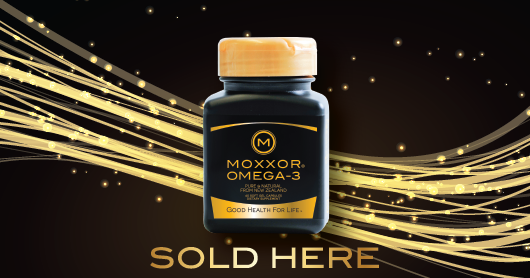How Are Fish Oils Really Made?
Lately, there have been hundreds of news stories touting the benefits of fish oil. From healthier hearts to improved brain function, fish oil is the latest “buzz”. What is interesting, people in Sweden, Denmark, Norway and Finland have credited their hardiness to a diet high in fish and fish oil for years.
Studies from around the world (especially with the Eskimos in Greenland) have revealed that the health benefits of fish oil come from two omega-3 fatty acids – EPA (eicosapentaenoic acid) and DHA (docosahexaenoic acid). Not surprisingly, these two healthy omega-3s are found in the fatty tissue of the fish consumed in great quantities by the Eskimos who took part in one of the many studies.
However, despite the growing amount of evidence that the omega-3 fatty acids in fish boast a bevy of health benefits, most Americans still won’t include enough fish in their daily diets. One of the major reasons is their concern about contaminants, especially mercury and PCBs (polychlorinated biphenyls) in certain types of fish. So, consequently, more Americans are buying fish oil supplements at a rate that makes them the fourth most popular dietary supplement in the United States.
Since its popularity, doctors are increasingly recommending it to their patients. The only problem is that not all fish oils are created equal. And the differences extend far beyond the amount of DHA and EPA offered in a particular supplement.
Almost all the fish oil used for supplements comes from fish caught off the coast of South America. This fish is then shipped to refining facilities in Norway and Canada where it is typically subjected to high temperatures or chemical solvents during processing. In fact, even though most fish oil supplements are supposed to be “natural”, they are just as processed and refined as the vegetable oils we find in the supermarket.
The quality of the fish oil supplement begins with the quality of the raw materials used. Although salmon is one of most popular sources of omega-3 EFAs. Sardines and anchovies are often used instead. So, to keep the raw material costs down, most companies don’t even use whole fish. Instead, they use the skin, bones, and other waste generated when these fish are processed.
Getting the omega–3 rich oil out of these bits of fish can be accomplished in several ways. First, the proteins in the fish are denatured, which means that heating the fish to 200 degrees for 30 minutes changes the proteins’ chemical structure. The fish are then put into presses to extract the oil. Once the oil has been pulled out of the fish, it can be bleached, deodorized, or purified to make it more palatable. To bleach fish oil the manufacturers use bleaching clays. Removing the fishy smell requires deodorizing the fish by injecting extremely hot steam into the oil.
Finally the fish oil is poured through activated charcoal to get rid of contaminants like mercury, PCBs, and dioxins.
One might think that simply pressing, bleaching, deodorizing, and purifying fish oil using the previously mentioned methods would be all that was required to make a fish oil product that could be bottled or put into capsules and sold to the public. Many companies have taken additional steps through the wonders of chemistry when they process their fish oil.
There is a process known as fractionation and concentration that not only purifies the fish oil; it also increases the percentage of DHA and EPA. The “only” problem is that this process requires the use of harsh chemical solvents that can leave a residue in the finished fish oil product. Another process, cryoconcentration, involves freezing the fish oil for 24 hours at more than minus 100 degrees. The result is freeze-dried, crystallized fish oil that has up to 2.5 times more DHA and EPA, however chemicals must be used to crate these frozen fatty acid crystals.
Chemicals are also used in another method: urea complexation. This process is quite similar to the way soap is made. An alkali, sodium, is combined with alcohol and used to separate sterols and fat-soluble vitamins from the fish oil. The fatty acids are then dissolved in a mixture of alcohol and urea (antiseptic) and cooled to concentrate the DHA and EPA content. Even though this method can boost levels to three times the original concentration, it can also leave a residue in the fish oil, which must be re-treated to remove the chemicals.
Of course, chemicals aren’t the only way to separate the fatty acids. Molecular distillation heats the oil to about 480 degrees in a low-pressure vacuum for six hours so that the condensed vapors can be captured. Under these conditions, the DHA and EPA aren’t very well protected against oxidation, and harmful trans fats can form.
A Revolutionary Omega 3 and Antioxidant
 There is new proprietary, stabilized natural marine lipid oil from the New Zealand green-lipped mussel. It contains a rare combination of lipid (fat) groups containing many polyunsaturated fatty acids (PUFAs). These PUFAs, which include omega-3s and some eicosatetraenoic acids (ETAs), have been shown to be extremely powerful anti-inflammatory compounds that are particularly effective (158 times more effective than any fish oil on the market) against arthritis.
There is new proprietary, stabilized natural marine lipid oil from the New Zealand green-lipped mussel. It contains a rare combination of lipid (fat) groups containing many polyunsaturated fatty acids (PUFAs). These PUFAs, which include omega-3s and some eicosatetraenoic acids (ETAs), have been shown to be extremely powerful anti-inflammatory compounds that are particularly effective (158 times more effective than any fish oil on the market) against arthritis.
Why is this lipid oil so effective? It is a purer product than any fish oil because the green-lipped mussel lives in such a sheltered and protected environment. The New Zealand environment is ideally suited for contaminated-free aqua farming that simply isn’t possible in ocean waters anywhere else. The lipids found in the green-lipped mussel are especially rich and efficacious due to a combination of the mussels’ genetics and their food – tiny organisms called microplankton.
Another problem with traditional fish oil supplements is the amount that must be taken to experience any benefit. But because of green-lipped mussel’s ability to be 100% bioavailable, it is 158 times more effective than any other omega-3 oils on the market. These omega-3s are of such a high concentration and natural balance that it is on average 247 times more effective then salmon oil.
Tagged with: fish oil the truth • fish oil truth • the truth about fish oilsl
Filed under: mussel oil
Like this post? Subscribe to my RSS feed and get loads more!







